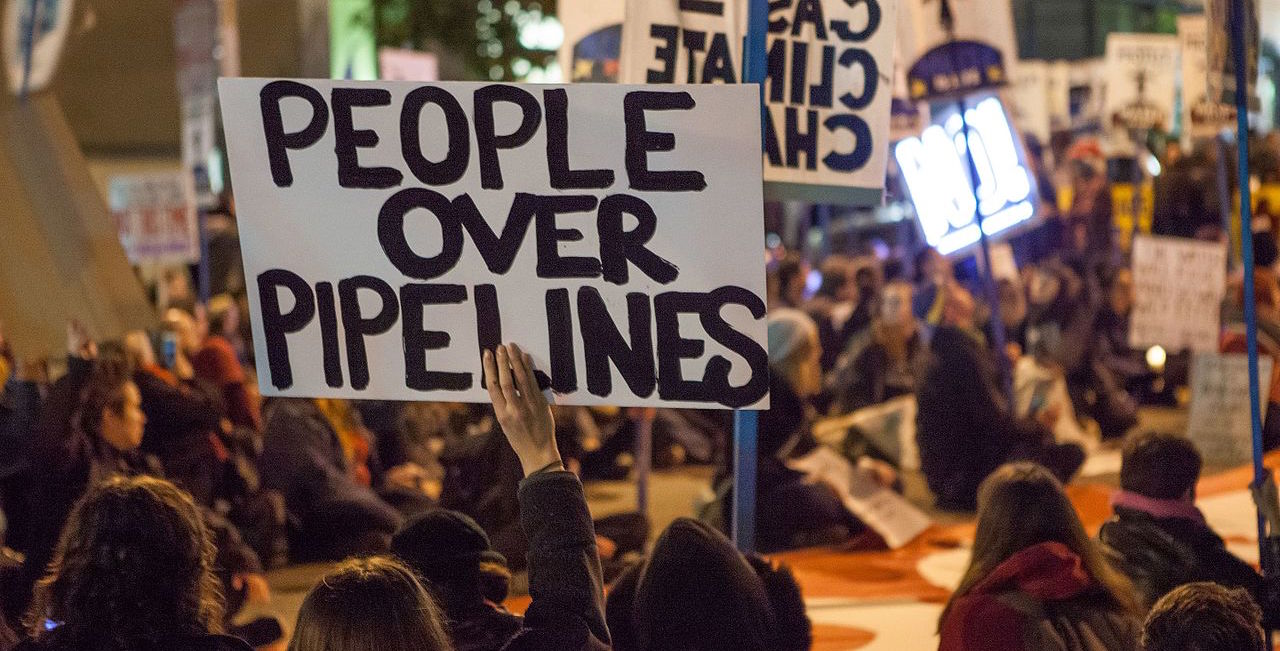Last week in Bonn, Germany, thousands gathered at the heavily secured United Nations climate conference, dubbed “COP 23,” a Potemkin village of bureaucrats, politicians, environmentalists, journalists and local support staff. Sixty kilometers away, in the 12,000-year-old Hambach Forest, scores of activists, living in treehouses, defended the old growth woodland in an ongoing struggle to save the rare ecosystem from destruction and stop the expansion of Europe’s largest open-pit mine, a sprawling hole in the earth where energy company RWE extracts lignite, or brown coal, the dirtiest coal on earth. Hanging over both was the political pall cast by President Donald Trump, who announced June 1 that he was pulling the U.S. out of the Paris Agreement, the global climate change accord negotiated by all the countries of the world.
“Whilst the United States might be saying that it’s pulling out, it still continues to play a destructive role,” Asad Rehman, executive director of London-based War on Want, told us on the Democracy Now! news hour, broadcasting from inside COP 23 (“COP” stands for “Conference of Parties” to the United Nations Framework Convention on Climate Change). “Donald Trump has come here, backed by his fossil fuel pals. He’s come here to wreck the climate negotiations.”
Big promises were made in Paris in 2015: Each signatory to the Paris Agreement made a voluntary pledge to reduce their carbon dioxide emissions. If pledges are met, the theory goes, then the global temperature rise above pre-industrial levels will be capped at 1.5, or, at worst, 2 degrees Celsius (2.7-3.6 degrees Fahrenheit), avoiding the worst consequences of climate disruption. Rich countries, largely responsible for the world’s polluting carbon emissions to date, pledged hundreds of billions of dollars to poorer nations, to allow them to recover from climate damage already done, and to pursue a renewably powered development path.
In response to Trump, U.S. civil society organized the “We Are Still In” coalition, with over 2,500 elected officials, state and local governments, CEOs, businesses, universities, faith leaders and grassroots organizations committing to meeting the Paris Agreement’s goals, since the Trump administration won’t. It is a big coalition, and not without dissension. As California’s Democratic Gov. Jerry Brown was speaking in Bonn, protesters began chanting, “California’s fracking spreads pollution,” and “Keep it in the ground!” Brown responded, addressing an indigenous activist: “I agree with you. In the ground. Let’s put you in the ground so we can get on with the show here.” The grim imagery of a white governor threatening to put a Native American in the ground was not missed by anyone.
Just one year ago, as families gathered in the United States to celebrate Thanksgiving, the holiday predicated on the wholesale whitewashing of the colonial genocide against Native Americans, the Indigenous-led resistance to the Dakota Access Pipeline on Standing Rock Sioux tribal territory in North Dakota was being subjected to increasingly intense state violence. Police and National Guardsmen unleashed so-called “less than lethal” armaments, with rubber-coated steel-ball bullets, tear gas, pepper spray, LRAD sound cannons and water cannons fired on crowds in subzero temperatures. The Standing Rock Sioux call the pipeline “the black snake,” carrying fracked petroleum from the Bakken oil fields in North Dakota through South Dakota, Iowa and Illinois, for transfer to another pipeline to carry it to the Gulf Coast. The black snake’s arrival in Lakota territory has long been prophesied.
Last Thursday, as COP 23 was wrapping up, a massive leak in the Keystone pipeline was discovered in South Dakota. At least 210,000 gallons of oil leaked from the pipeline, just as TransCanada, the pipeline’s owner, was seeking final permission from Nebraska’s Public Utilities Commission to build its Keystone XL pipeline. Despite the leak, the PUC granted the permit for the controversial KXL to carry toxic tar sands oil from Canada to the hurricane-battered U.S. Gulf Coast for refining. President Barack Obama, after years of resistance, finally killed the pipeline. Trump, as soon as he took office, boastfully greenlighted both KXL and DAPL.
Back in the Hambach Forest, activists are bracing for RWE and German police to raid their treehouse villages, arrest them all and clear-cut the remaining 10 percent of the ancient forest. “It’s time to resist against state power,” a forest defender named Indigo told us. Commenting on the nearby COP 23, she added, “It’s time that we take responsibility for our own lives…that we create a world which gives us the power to act, instead of hoping that other people will solve problems.”
The day before the climate summit opened, 4,500 people marched into the open pit and halted mining for the day. Nearby, in the remaining occupied forest, a banner was strung between two ancient oaks. It proclaimed, “Respect existence or expect resistance.”
This column was first published on Democracy Now!
Photo: Pax Ahimsa Gethen/Wikimedia Commons
Chip in to keep stories like these coming.




